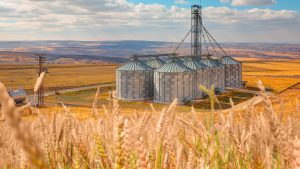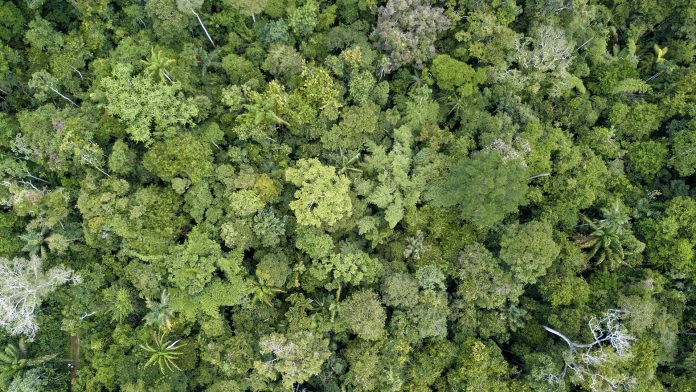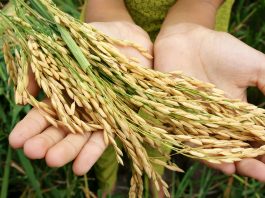UK scientists have argued that policymakers should consider land sparing, as research has shown that some current conservation policies may accelerate global biodiversity loss.
Green farming policies, including rewilding and organic farming, may worsen the global biodiversity crisis by reducing how much food a region produces. This will drive up food imports and increase environmental damage overseas.
In the article, ‘Current conservation policies risk accelerating biodiversity loss’, Professor Andrew Balmford at the University of Cambridge, and Professor Ian Bateman at the University of Exeter, urge policymakers to consider a bolder approach known as land sparing.
What is land sparing?
Land sparing involves finding lower-impact ways to boost yields in farmed areas and allows larger, non-farmed areas of the landscape to be put aside for nature. This can be done without increasing imports and damaging overseas wildlife.
As well as this, the researchers argue that the approach is cheaper, more effective, and avoids displacing food production.
Why has land sparing been previously overlooked?
The researchers state that land sparing has been overlooked by policymakers because of a failure to consider the wider consequences of changes in land management.
Although changes that boost wildlife locally appear attractive, if food production is reduced, there are knock-on effects elsewhere that should be taken into account.
Big Farm lobby also plays a major role in maintaining the status quo in agricultural policy.
Land sharing subsidies are allocated using a flat rate per hectare, disproportionately benefitting the biggest farms. This has resulted in the largest 12% of farms taking 50% of all UK taxpayer subsidies.
Debunking the benefits of three green farming conservation policies
In their article, the researchers debunk some of the benefits to biodiversity of three widely advocated green farming approaches.
Although some conservation policies, like reducing the use of pesticides and fertilisers, can sometimes increase populations of more common animals and plants on farms, it does little for endangered animals that need larger stretches of non-farmed habitat.
By lowering yields of pesticides and fertilisers, overseas biodiversity can be made a lot worse.
Rewilding initiatives can also benefit locally endangered species.
However, unless other areas see compensating increases in food output, local production is reduced, and food imports are subsequently increased – damaging biodiversity overseas.

The researchers also argue that organic farming is even more likely to be damaging. Few species will benefit in the farmed area, and the yields are substantially lower.
This again increases the need for food imports, impacting biodiversity elsewhere.
Land sparing delivers greater biodiversity gains than current conservation policies
In contrast to the three green farming approaches mentioned above, land sparing involves retaining or creating sizeable blocks of unfarmed land containing larger populations of the many species that depend on natural habitats.
The approach also boosts farm yields elsewhere in the region so that overall production is maintained or even increased.
Methods to boost crop and livestock yields more sustainably than current high-yield practices include genomic screening and gene editing to accelerate animal and crop breeding; using new advances in aquaculture to produce high value foods with much lower environmental impacts; and, in tropical countries, greater access to improved pasture and veterinary care.
In the article, the researchers looked at field studies on five continents that consistently show how land sparing delivers far greater biodiversity gains than conventional ‘nature friendly farming’ policies.

It is also likely to cost a lot less. Last year, a survey of UK farmers found that land sparing could deliver the same biodiversity outcomes for birds as conventional approaches. The approach would be 48% of the cost to taxpayers and a 21% lower impact on food production.
Professor Bateman, a Professor of Environmental Economics at the University of Exeter Business School who has advised seven UK secretaries of state for the environment in the past decade, said:
“The stakes are too high for policymakers to continue to ignore the promise of land sparing when so much research demonstrates that it is a far more effective approach than many of the strategies being deployed.
“Unless researchers and policymakers assess the overall, global effects of interventions aimed at addressing biodiversity loss and climate change, poor decisions that are unsupported by the data will at best under-deliver, and at worst exacerbate existential threats posed by the extinction and climate crises.”
Andrew Balmford, a Professor of Conservation Science at the University of Cambridge who has led 20 years’ work investigating how to reconcile food production with biodiversity conservation, added:
“This issue has become even more urgent since last December when many countries agreed to help meet the Convention on Biological Diversity’s goal of protecting 30% of the planet’s land and oceans by 2030.
“Exactly how this 30% will be put aside – and how we meet humanity’s growing needs on the rest of planet – will in large part determine the biodiversity consequences of this ambitious commitment.”





